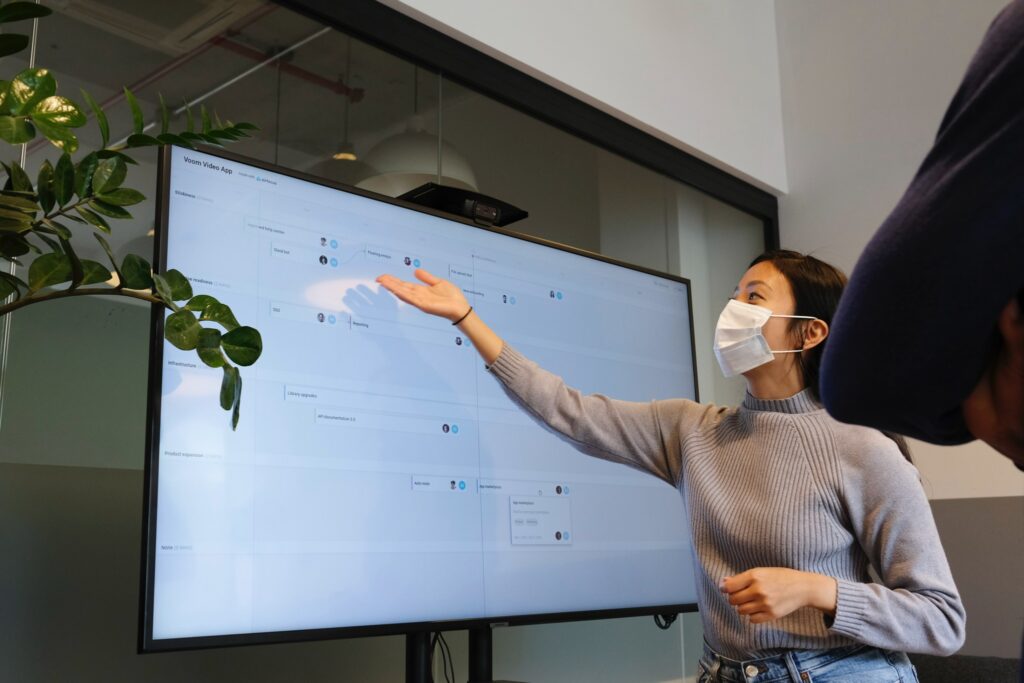Every college student knows the drill. Sometimes the occasional curiosity gets the better of you and compels you to open your university’s graduation requirements, scanning to see what you’ve checked off and what you still must do before you’re set free into the real world.
While universities outline the graduation requirements needed to earn a degree, they offer no list for other essential aspects of the college experience that set students up for success long after they’ve crossed the stage and receive their diplomas.
From clubs and organizations to quarterly informational meetings and on-campus resource centers–the list is endless. However, for students preparing for their professional future after college, the most supplementary program to participate in is an internship, which has shown its benefits towards the future of college students, especially in current times.
For students that have never considered the idea or for students currently on the lookout, read on to learn about 10 things you can gain from an internship.
1. Work Experience

An internship acts as one of the most important work experiences you could acquire during your collegiate journey. Since you can find an internship for any discipline or job, there’s a wide variety to apply for and consider. But no matter which one you choose, every internship provides students with an opportunity to add another work experience outside of their academics. Gaining work experience shows future employers that you are self-driven and eager to make an impact in your discipline. Also, an extensive work history tells employers that you are constantly looking to better yourself, your work ethic and your skills!
“Whenever I have to interview for a new job or any opportunities I want to take advantage of, I always make sure to bring up my internship. It’s a good talking point for employers because it shows them that I’ve already had experience in my field and am focused on advancing my career,” University of California Santa Barbara senior Neema Nawabi said.
With an internship in your work history, your chances of standing out amongst other job applicants significantly increase, making an internship a must-have on your resume. Internships demonstrate to employers that you actively participate in your field to continuously learn more. Listing an internship on your resume also tells employers that you may have skills that they need for their company, which means you’re the perfect candidate!
2. Identity in the Workplace

How would you describe what kind of person you are in the workplace? If you’ve never been asked that question before, here’s a hint: employers love it. The best way to find the answer is to participate in an internship, where collaboration with your fellow interns and your mentors remains crucial to completing your assignments successfully. Most internship programs get designed with communication and teamwork in mind. This initiative lets students gain more insight into their identity, strengths and weaknesses within the workplace.
3. Learning About Professional Etiquette

While most high school students come into college with another form of work experience, many of the jobs qualify as entry-level and don’t necessarily practice professional workplace etiquette within an office. An office’s work culture could feel completely different than anything students experience, but interns watch how everyday etiquette and communication establish themselves within the office through the completion of timesheets, writing effective (but short) emails and hopping in and out of meetings throughout the day.
4. Project & Presentation Opportunity

Most internships assign their interns to projects that could improve the current ideas of the company or bring something to the table that the company has never seen before. With an opportunity like this, interns are given the resources and the platform to unleash their creative visions with a team to support and guide them. Got an idea you think could never work? Finding an internship tells you that maybe, it just might.
“During one of my internships, I was able to work closely with clients to help them build visual brand identities to help them enter the digital market,” University of Southern California senior Stella Wong said.
As a graphic design intern, Stella explored different ways to approach client visions for a branding agency in China. She worked closely with her clients to help them build visual brand identities that would help them enter the digital market. With the resources her internship provided her, Stella adapted and designed user-centric experiences for digital landscapes and markets, diversifying her skill set for future positions she applies for.
5. Mentors

Your university professors and teaching assistants remain some of the most influential people you get to meet during your academic journey. But they encounter hundreds of students each semester or quarter. As a result, getting one-on-one advice for your personal goals and projects can seem difficult. For most internships, you work under a mentor who guides you through the company or organization’s process for your discipline. Not only does this mentor help you navigate the internship and the company’s mission, but even after the program ends, they can still provide useful feedback and support for your aspirations at a more personal level.
6. Certifications

Some disciplines require licenses, certifications or supplementary skills to get certain jobs, such as graphic designers, computer engineers and accountants. Unfortunately, for a lot of these additional skills, you must pay for training and certification. However, in some internship programs, your mentor can introduce you to new skills that you may need for the future jobs you want to apply for, and you can get certified as you complete the program!
7. Career Preparation

One of the main reasons students apply for internships is career advancement. But, aside from getting work experience in your specified field, internships provide you with opportunities to update your career profile and improve it for potential employers. Many internships hold career workshops that all the interns within the company can attend. During these events, interns can ask questions about what they should include on their resume, how to give an elevator pitch and how to set up a LinkedIn account to keep up with current job trends. You can also sit down with your mentor and ask them to review your resume and cover letter to see if they have any advice that could sharpen your career profile.
8. Friends

While internships supplement the work you complete within your field, it doesn’t mean they aren’t fun. And a huge part of that fun starts with meeting the other interns that participate in the program with you. Companies hire interns across different disciplines, meaning you’ll get to meet and experience people in other departments, while also working with other interns that specialize in the same field as you. With how much time you dedicate to completing projects, becoming friends with the people you work with proves inevitable.
In my recent internship with RAPP San Francisco, I worked as a Creative Copywriter Intern tasked with editing and coming up with copy for advertisements. Between meetings and brainstorming sessions, my partner (one of the most amazing graphic designers I’ve ever met) and I would walk to a coffee shop or burger place, talking about our goals after college and our backgrounds. The personal connection just made the workflow so much easier, and even after the internship ended, I now have a new friend and a network connection for all my graphic designer needs.
9. Free Stuff

This reason isn’t as compelling as the others, but it’s true! Companies love to show their appreciation for their interns and the hard work they put in, and what better way to do that than with free merchandise? I’m sitting here typing this while I write in my RAPP notebook, wearing my RAPP hoodie.
10. An Actual Job

In many cases, companies offer their interns a fulltime job after the program ends, which appeals to many college students hoping to break into the professional world and make their mark. The scramble to find a job after graduation proves to be a stressful time for college students, but it can be alleviated with internship opportunities.
Because many companies use internships to assess the work ethic of their interns, mentors or other employees within the company could potentially notice your work and offer you a more permanent position.
“At first I was hesitant since it wasn’t my first choice, career-wise,” Cosumnes River College graduate Yamileth Torres said. “As I started learning more and more about it, I saw a future in coding and the company I interned for saw a future for their company with me in it. They decided to hire me as soon as my internship program ended!”
Many stories similar to Yamileth’s exist that end with employment success, but it remains obvious she gained more than just a job. Yamileth, like so many other students and interns, was able to complete a program that gave her opportunities to solidify her future career goals, find her identity within the workplace and establish herself within her field. Overall, applying to an internship continues to be a great way for college students to begin their professional careers, gain experience in their specific fields and acquire skills that are applicable across any job. If you weren’t looking for one before, I hope I’ve convinced you now that you will gain at least ten things from an internship.



















